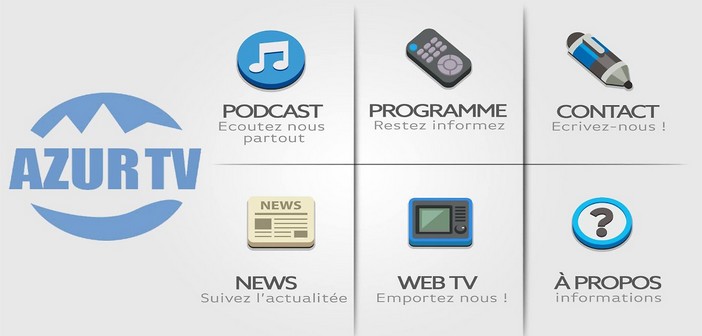During last Friday’s City Council meeting, the deliberation concerning the funding of the local channel Azur TV was subject to a critical intervention by councilor Guillaume Aral (FN), who raised several reservations and questions.
What are we talking about?
The City of Nice has committed to providing up to 2,700,000 euros by 2021. This is the subject of the deliberation, but it is known that, in addition, the Metropolis will contribute 1 million euros.
Regarding the relevance of this funding, some questions naturally arise.
We might pretend to believe that Azur TV will ensure “honesty, independence, pluralism of information as well as the pluralistic expression of currents of thought or opinion,” even though Guillaume Aral asserts that “if the taxpayer from Nice is part of the National Front electorate, they will also have noticed that no FN elected official from Nice has been invited to the set outside election periods. On the contrary, the mayor and his deputies are omnipresent, facing very complacent journalists.”
“Certainly a case of gratitude,” the councilor added.
As a Société par Actions Simplifiée, Azur TV is a for-profit entity. The capital is 5,000 euros, certainly insufficient compared to the type of investment.
As they say in these cases, if the promoters themselves don’t believe in the initiative, why should others?
The business plan for 2016, 2017, and 2018 shows activity growing and in relatively good shape.
But if we look closely…
Let’s read the key figures (in thousands of euros):
Revenue: 300, 350, 400 over the three considered years
Subsidies: 850, 900, 930
Result/profits: 78, 87, 133.5
You don’t need to be a genius to understand the situation and draw some conclusions:
– The subsidies/revenue ratio averages approximately 2.5/1, which seems very disproportionate. In fact, only 25% of the income depends on the activity, the rest comes from public sources. For a capitalistic company…
– The positive results depend exclusively on subsidies; without these, the company would be obliged to ask shareholders to absorb losses with substantial contributions or, in case of non-compliance, to cease operations.
– If the anticipated results are confirmed, the company will gain value and its shareholders will benefit either in terms of dividends or in the appreciation of their modest initial investment.
In short, the case can be summarized as follows: the public bodies provide the money and the shareholders, practically without any risk, profit.
Who can top that? A formula that should be patented but won’t be easy to “spread” for lack of gullible candidates!


